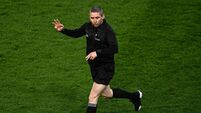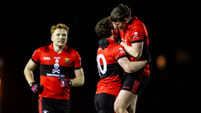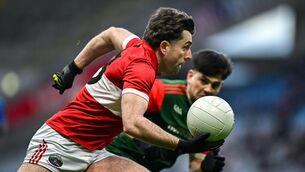Mourne men ready to take to the throne
Down were in a good place going into that game having impressed in seeing off Donegal in Ballybofey and they were in an even better place after the first 20 minutes of the provincial semi-final in Belfast.
Eight points to four up at that point, and playing into a stiff Cement Park wind, Down were tearing through Tyrone’s defence at will and Stephen O’Neill had already limped off with a heel injury.














